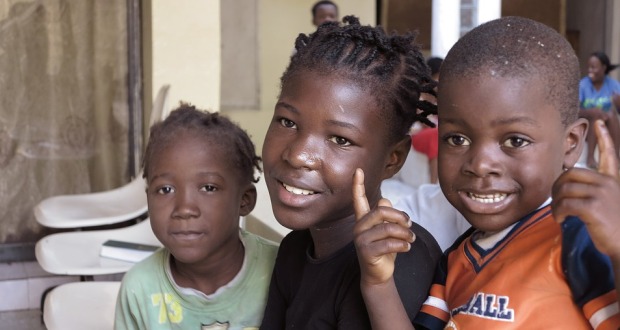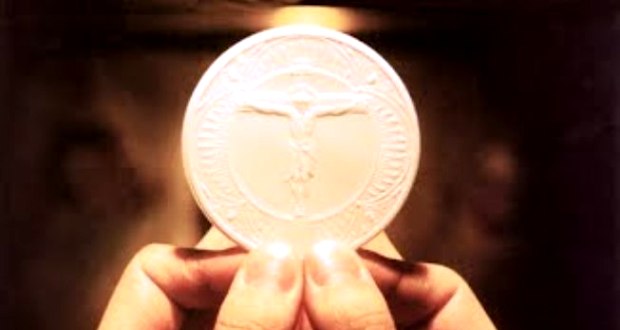What Do Today’s Readings Tell Us About Adversity?

Fr Dexter Brereton, CSSp
Several days ago, a friend of mine told me that she had spent the better part of the night talking to an ex-friend of hers, who reached out to her, out of the blue. The break-up of their friendship had been for her, an extremely painful experience. Friends since childhood, her friend had migrated, done well for herself and over-time, let it be known that she had outgrown the friendship and ended up betraying her. I had been through a slightly similar experience of my own so that I find that in this time of calamity, when the world in which we live seems to be falling apart, the Lord is quietly opening those graves, those tombs of failed and broken relationships which lie rotting and stinking in the earth. We are not surprised by Martha’s words to Jesus this morning: Jesus said, ‘Take the stone away.’ Martha said to him, ‘Lord by now he will smell; this is the fourth day.’ Jesus replied, ‘Have I not told you that if you believe you will see the glory of God?’ So they took away the stone.
Just as he does with our failed and broken relationships, just as he does with the many failed projects in our lives, the raising of Lazarus in this weekend’s gospel is a vivid illustration of the power of Jesus over the forces of death and sin. In this fraught time of the Coronavirus pandemic, the wider truth in the teaching of this morning’s Gospel reading is that we are really being presented here with God’s answer to suffering.
When as Christians we speak of God’s answer to suffering, the enormous suffering of the world, the first thing upon which we must insist is that God’s answer to human suffering is not a statement or a mathematical formula 1 + 1 = 2, God’s answer to the suffering of the world is primarily a PERSON. Jesus himself , in the words of one great theologian is not God’s answer but God’s answerer. And if we as people of faith are to give a credible response to the tremendous suffering at this moment in the history of the world, we need to acknowledge its sheer magnitude and depth. Let us begin our reflection this week by being brutally honest. We as Christians have preached a God who is love, a God who is forgiving and trustworthy, a God who delivers us from evil, who protects us from harm. Now what we see in the emergency rooms of New York, Milan, Paris, Madrid, is God’s absence. In these powerful scenes of suffering and infection, we sense only dereliction and death. God, it seems is nowhere to be found, at least not here, not now.
We know the place that Mary and Martha are speaking from: “Lord, if you had been here my brother would not have died. Lord if you had been here, all these people would not have died.” We understand too the subtle reproach of the crowd : “he opened the eyes of the blind man, could he not have prevented this man’s death?” We understand, in intimate fashion the words of Jesus as he died on the cross: “My God, My God, why have you forsaken me?” “My, God, my God, why have you forsaken us?” Isn’t it logical many say to themselves, ‘we preach a loving God well then why doesn’t a loving God take away the misery of the world?’ Why does a good, all powerful God allow bad things to happen to innocent people. Here then is a fundamental problem of human existence that has exercised the minds of Christian thinkers from the earliest times of the church. Lacantius, a Christian apologist stated the problem as follows: “God either wishes to take away evils, and is unable; or he is able, and is unwilling; or he is neither willing nor able, or he is both willing and able. If he is willing and is unable, he is feeble –which is not in accordance with the character of God. If he is able and unwilling, he is envious, which is equally at variance with God; if he is neither willing nor able, he is both envious and feeble, and therefore is not God; if he is both willing and able, which alone is suitable for God, from what source then are evils? Or why does he not remove them? Unde malum? (from whence, cometh evil?).
In response to the suffering of the world, we are presented with a savior who himself enters deeply into the mystery of suffering and is also affected by it. St John writes: Jesus said in great distress, with a sigh that came straight from the heart, ‘where have you put him?’ They said, ‘Lord, come and see.’ Jesus wept; and the Jews said, ‘See how much he loved him!’ Our God, in and through his Son Jesus, the incarnate Word, shares deeply in our sorrow, our weakness and our struggle. The Son of God offers us then, in his humble life, not so much an explanation for suffering but a model of how to live this time of suffering. His words of dereliction on the cross, “My God, my God why have you forsaken me?” testify to the depth of his suffering, the depth of his sense of abandonment, but notice that this suffering is a suffering that is lived n the presence of God. There is room for faith, even in the hour of trial. He surrenders his life to God the Father, who alone has the mystery of life in his hands and it is the Father who will either transform or take away his suffering in the fullness of time.
Examining and reflecting on social media posts, suffering seems to bring out the true character of many people. This reminds me of a beautiful story I found online some time ago:
A young woman went to her grandmother and told her about her life and how things were so hard for her – her husband had cheated on her and she was devastated. She did not know how she was going to make it and wanted to give up. She was tired of fighting and struggling. It seemed as soon as one problem was solved, a new one arose.
Her grandmother took her to the kitchen. She filled three pots with water and placed each on a high fire. Soon the pots came to boil. In the first she placed carrots, in the second she placed eggs, and in the last she placed ground coffee beans. She let them sit and boil; without saying a word.
In about twenty minutes she turned off the burners. She fished the carrots out and placed them in a bowl. She pulled the eggs out and placed them in a bowl. Then she ladled the coffee out and placed it in a bowl.
Turning to her granddaughter, she asked, ‘Tell me what you see.’
‘Carrots, eggs, and coffee,’ she replied.
Her grandmother brought her closer and asked her to feel the carrots. She did and noted that they were soft. The grandmother then asked the granddaughter to take an egg and break it. After pulling off the shell, she observed the hard boiled egg.
Finally, the grandmother asked the granddaughter to sip the coffee. The granddaughter smiled as she tasted its rich aroma. The granddaughter then asked, ‘What does it mean, grandmother?’
Her grandmother explained that each of these objects had faced the same adversity: boiling water. Each reacted differently. The carrot went in strong, hard, and unrelenting. However, after being subjected to the boiling water, it softened and became weak. The egg had been fragile. Its thin outer shell had protected its liquid interior, but after sitting through the boiling water, its inside became hardened. The ground coffee beans were unique, however. After they were in the boiling water, they had changed the water.
“Which are you?” she asked her granddaughter. “When adversity knocks on your door, how do you respond? Are you a carrot, an egg or a coffee bean?
Think of this: Which am I? Am I the carrot that seems strong, but with pain and adversity? Do I wilt and become soft and lose my strength?
Am I the egg that starts with a malleable heart, but changes with the heat? Did I have a fluid spirit, but after a death, a breakup, a financial hardship or some other trial, have I become hardened and stiff? Does my shell look the same, but on the inside am I bitter and tough with a stiff spirit and hardened heart?
Or am I like the coffee bean? The bean actually changes the hot water, the very circumstance that brings the pain.. When the water gets hot, it releases the fragrance and flavor. If you are like the bean, when things are at their worst, you get better and change the situation around you. When the hour is the darkest and trials are their greatest, do you elevate yourself to another level?
How do you handle adversity? Are you a carrot, an egg or a coffee bean?






